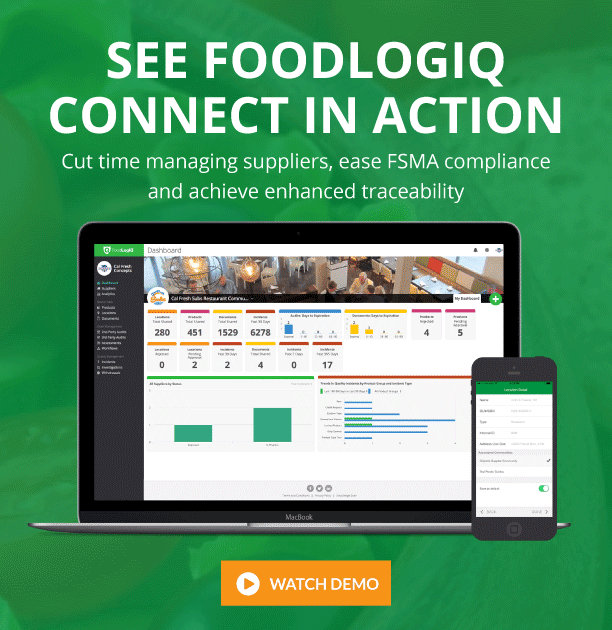The continued blending of foodservice and retail, full-force FSMA and recalls, recalls, recalls - just a few of the trends that will shake up the foodservice industry in 2017.
Full-Force FSMA is Here
The past two or more years have been focused on preparation for the Food Safety Modernization Act. Well, now it’s here. 2017 will be the first full year of FSMA compliance, with the FDA carrying out audits, and for larger companies, truly facing the reality of the FDA knocking on their door. Requesting required records, conducting audits and in the worst situation for food companies, shutting down operations if they feel it’s called for. Just this month, armed U.S. Marshalls seized more than 4 million pounds of milk products from a production unit of a major dairy cooperative.
Growth in Foodservice At Your Doorstep
Brands like Starbucks and Panera have been testing the food home delivery waters, but more and more companies are popping up that bring gourmet food directly to your doorstep. Blue Apron and HelloFresh, just to name two.
In addition to the major restaurant brands and the litany of startups, consumer goods companies are getting in on the action too. Tyson Foods, Campbell Soup, and Hershey are all working with online couriers to crowd an increasingly crowded meal-kit market to ship ingredients along with their products with easy-to-make recipes for brand loyal food lovers looking for added convenience.
 “Grocerant” Emerges as a Real Segment
“Grocerant” Emerges as a Real Segment
With the rise in the “Fast Casual” segment - not quite fast food, not quite sit-down - retailers have taken notice too. According to restaurant consulting firm Baum + Whiteman, retailers are tapping into the magic of "dwell time.” The longer you keep a shopper on the premises, the more the shopper will buy per hour of stay.
Case in point, our customer Whole Foods has partnered with the boutique high volume sandwich-salad chain, Mendocino Farms, to help boost their growth and, more importantly, to place their units into select Whole Foods Markets and their new 365 stores. They just opened the first location with many more to come!
Recalls, Recalls, Recalls
We experienced this in 2016 and this trend is not going away anytime soon. As more advances in food testing are realized across the industry, food manufacturers will implement more testing across their supply chain and inevitably more products will need to pulled out of the supply chain because of that increased testing. The companies who are able to do this quickly and efficiently - armed with the data needed to be effective - will not experience the pain that others in the industry will feel.
With recalls here to stay in the food industry, companies need to be prepared to handle these issues quickly and effectively in 2017. By implementing supplier management and whole-chain traceability software, allergens and impurities can be pinpointed to a specific lot of product, as opposed to being limited to processing/issue date and not knowing the source or country of origin of every ingredient (as many suppliers can contribute to one product) within the supply chain.
Moving Towards a Fully Digital Supply Chain
The food supply chain in many ways is still lagging behind in technology compared to other supply chains. In 2017, many companies will begin or continue on their journey to fully digitize their supply chain, whether that is simply getting their list of approved suppliers out of Excel into a supplier management software solution or fully capturing every step of their products along the journey from farm to fork.
The spectrum of digitization across the supply chain is quite broad. But bottom line, supply chain analytics will empower food companies to create useful KPIs and allow them to truly measure the ROI of their supply chain initiatives. And systems like FoodLogiQ Connect fully support the daily monitoring, sharing, and interpretation of those analytics needed to help companies experience tremendous growth in 2017.
The Connected Supply Chain Will Win
Collaboration with your supply chain partners is an absolutely critical element, and we expect to see more companies fully integrate throughout their network of suppliers and customers. Food companies that will succeed in 2017 will need a fully integrated supply chain network, with access to the same information, working towards a shared mission to deliver results and stay ahead of their competitors. A connected supplier network will allow food companies to be agile when faced with an issue, responsive to recalls, as well as flexible and efficient.
Here at FoodLogiQ we're excited to go into 2017 working alongside our customers to create a safer and more transparent food supply chain. Interested in learning more on how we can help you in 2017? Check out our video demo below and request a demo to get started.
Tag(s):
Food Industry





